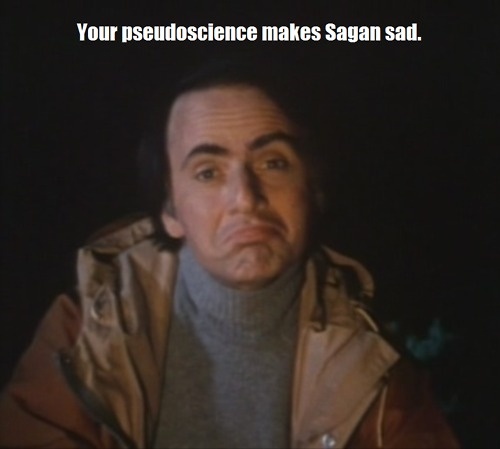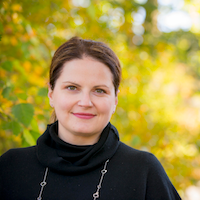 In my fourth-ever post on this blog, Peter Hess and I wrote about how a whooping cough epidemic in California was a symptom of denialism and overall resistance to certain scientific messages. We said: “To successfully change minds, it’s important to catch the denialism before it becomes entrenched.” As you might imagine, we talk about denialism a lot around NCSE—it’s quite literally our raison d’être. NCSE was founded in the midst of calculated efforts by evolution-deniers to alter how science was taught in public schools. Educators, parents, community members and others needed help getting organized to counter attempts to teach creationism. NCSE became—and remains—the #1 go-to place for advice, support, and action when science denial comes knocking on the doors of our schools. The metaphor we use around the office is that where there is a fire, NCSE will show up to hand out fire extinguishers.
In my fourth-ever post on this blog, Peter Hess and I wrote about how a whooping cough epidemic in California was a symptom of denialism and overall resistance to certain scientific messages. We said: “To successfully change minds, it’s important to catch the denialism before it becomes entrenched.” As you might imagine, we talk about denialism a lot around NCSE—it’s quite literally our raison d’être. NCSE was founded in the midst of calculated efforts by evolution-deniers to alter how science was taught in public schools. Educators, parents, community members and others needed help getting organized to counter attempts to teach creationism. NCSE became—and remains—the #1 go-to place for advice, support, and action when science denial comes knocking on the doors of our schools. The metaphor we use around the office is that where there is a fire, NCSE will show up to hand out fire extinguishers.
 But we know that for every fire we help to put out, hundreds more are smoldering. We won in Dover—but most students still aren’t adequately learning about evolution. There is an overwhelming consensus about the anthropogenic causes of climate change—but most people still think it’s unsettled. But I don't think it's because most people are science denialists—rather, I think that it’s because active efforts to sow confusion and doubt, combined with a relatively low comfort level with science in the general population, have created an epic cloud of confusion around these topics.
But we know that for every fire we help to put out, hundreds more are smoldering. We won in Dover—but most students still aren’t adequately learning about evolution. There is an overwhelming consensus about the anthropogenic causes of climate change—but most people still think it’s unsettled. But I don't think it's because most people are science denialists—rather, I think that it’s because active efforts to sow confusion and doubt, combined with a relatively low comfort level with science in the general population, have created an epic cloud of confusion around these topics.
And we won't see the end of sobering statistics on public understanding of evolution and climate change if we target only denialists. Yes, we obviously need to step up when denialists start meddling with standards and textbooks. But in the classroom, you can’t just target denial. Some teachers fall under the denialist label, and we want to catch them, but most teachers don’t. They may feel pressure from denialist administrators and parents, but many don’t. But everyone is affected by the overall societal vibe that these are somehow contentious issues. So I prefer a broader message because it applies to everyone.
But the mission of NCSE has never been, nor will it be, to teach everyone science. Do we love talking about science? Yes! Do we love and support science educators? Yes! But we don’t write lesson plans or lecture in front of a class every day. So how do we help improve understanding of evolution, climate science, and science as a way of knowing while simultaneously steering clear of the broader business of teaching science? It’s not an easy balance to strike. Ann Reid and the rest of us at NCSE have had many challenging and deep conversations about it. Just last night, Ann and I were searching for the right way to describe our role in education that was true to NCSE’s mission but with enough breathing room to let us do what we feel needs to be done. Finally, we had a breakthrough. Here’s what we came up with:
We see our mission as getting teachers, kids, and everyone else to GET IT. As part of that goal, we want to help kids learn the science in a way that shores them up against denial in the present and future. We want to help train teachers to root out and address common and festering misconceptions head-on. In short: We want to do everything we can so that kids—who are growing up in a world where science is often misrepresented—won’t be confused by denialists or turn into denialists.
So what do we call this broader denial-centered mission? Here’s our thought: Support the development of a “science-savvy” citizenry—people who have a clear-eyed view of how science works. I am not trying to diminish the problem we have with science  denialism. There are many absolute science deniers. People who would have you think that climate change is completely natural or the invention of scientists who are in the pockets of some kind of shadow elitist conspiracy to move the United States to a kale-based economy. There are people who truly think that biological evolution is a fairytale that will corrupt the souls of anyone that “believes” it. These people are a huge obstacle to the goal of improving science literacy in this country. They thrive on the general confusion around these topics, and the widespread impression of a controversy that most people feel ill-equipped to judge. What NCSE is shooting for is a future where these people are a whole lot less influential, a whole lot less tempting, and a whole lot easier to ignore. Less an obstacle and more a footnote.
denialism. There are many absolute science deniers. People who would have you think that climate change is completely natural or the invention of scientists who are in the pockets of some kind of shadow elitist conspiracy to move the United States to a kale-based economy. There are people who truly think that biological evolution is a fairytale that will corrupt the souls of anyone that “believes” it. These people are a huge obstacle to the goal of improving science literacy in this country. They thrive on the general confusion around these topics, and the widespread impression of a controversy that most people feel ill-equipped to judge. What NCSE is shooting for is a future where these people are a whole lot less influential, a whole lot less tempting, and a whole lot easier to ignore. Less an obstacle and more a footnote.
You’ll be hearing a lot more from us in the coming months about our new initiatives to support science savviness. We will continue doing what we’ve always done, too. In fact, we will most likely be doing a lot more of it because the new programs we will be rolling out will lead to the identification of a far greater number of problems in science classrooms—far more fires that will need effective fire extinguishers. But maybe, in a not-too-distant future, there won’t be such a demand for our talents, because a country of science savvy citizens won’t need help defending the integrity of science education because there won’t be viable threats. Fingers crossed for an early retirement!
Are you a teacher and want to tell us about an amazing free resource? Do you have an idea for a future Misconception Monday or other post? See some good or bad examples of science communication lately? Drop me an email or shoot me a tweet @keeps3.

